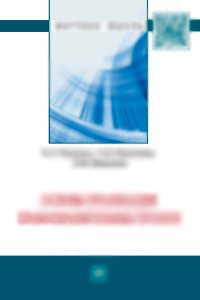employee from 01.09.2001 to 31.12.2018
Nizhniy Novgorod, Nizhny Novgorod, Russian Federation
employee
Nizhniy Novgorod, Nizhny Novgorod, Russian Federation
The monograph discusses theoretical, methodological and practical approaches to the assessment of the properties of tax systems. The theories and concepts of taxes, as well as empirical approaches to modeling the relationship between the parameters of the tax and economic system of the country are studied. On the example of the tax system of the Russian Federation in 2006-2017 such properties of tax systems as profitability, uniformity of taxation and risk are investigated in dynamics. The method of assessment of uneven taxation is proposed, on the basis of which the contribution of individual taxes and industries to interregional differences in the level of tax return in the Russian Federation is determined. The method of risk assessment and decomposition of the tax system using the portfolio approach of G. Markowitz and U. Sharpe is proposed. The application of this technique allowed to determine the contribution of different taxes, industries and regions to the risk of the tax system of the country and its regions, as well as to conduct a comparative risk assessment of tax systems of the Russian Federation in the distribution of tax revenues between the three levels of the budget system. The paper also proposes and tested a method of factor analysis of tax revenues in the Russian Federation, which allowed to assess the impact of inflation, economic growth, the overall level of tax return and its relative level in the regions on the growth of tax revenues in the Russian Federation and its subjects in 2006-2016. The monograph is of interest to the scientific and academic community, government and business.
tax system, economic system, correlation, taxes, yield rate, inequality, risk, evaluation, Markowitz-Sharpe portfolio approach, decomposition, factor analysis






